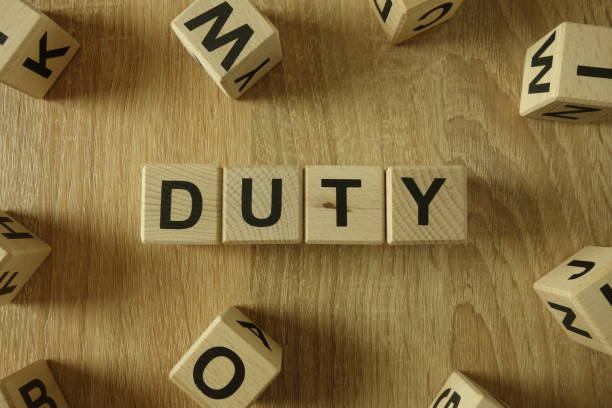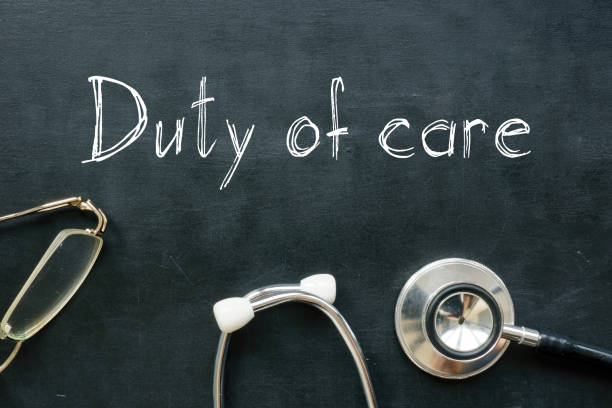Parties often ask us the question ‘what is duty of care?’ In this article we aim to explore this question. To begin with, the simplest answer to the question ‘what is duty of care?’ is that it is the legal and moral duty of protecting the safety of others, and protecting them against foreseeable harm. In other words, duty of care are a set of legal obligations to not cause any harm to another person.
By that definition, you can say that a person breaches their duty of care if they do something, or fail to do something, that results in an injury to another person. The person suffering from the injury then faces a loss. The question of ‘what is duty of care’ is closely related to the law of negligence. The Civil Liability Act (NSW) enables people who have suffered personal injuries to seek remedy from courts.
What Is Duty of Care and Why Is It Important?
It is important to note that duty of care is a legal obligation. It is not optional. A person is negligent when they owe this duty to someone but fail to fulfil it. It is important because if a person suffers loss as a result of this negligence, safety laws give them the right to recover some of their losses.
Generally, the person affected due to this negligence can sue for losses. This is if the harm was reasonably foreseeable. What does this mean? This means that any reasonable person in the same position would have been aware about the risk of harm or injury and exercise reasonable care. In such cases, the injured party may be eligible to receive compensation claims.
Depending on the nature of the case, the injured person can either sue for economic loss or non-economic loss. As the name suggests, economic loss is related to money or financial loss. This could also include damage to property. On the other hand, non-economic loss can include personal injury or pain.
When reading up about ‘what is duty of care’ it is necessary to be aware about the relevant legislation. For example, in New South Wales, this is mentioned in the Civil Liability Act (2002). The Act also contains parts that provide information on estimation of costs in case of damage. It provides information about making claims in case of damages, and also about protection from liability in special circumstances.
This law of negligence can be applied to many different areas of life, from casual settings like public parks, to more formal settings involving businesses where duty of care exists. If you are wondering ‘what is duty of care’ in a business context, it refers to the legal responsibility of company directors to make important decisions in good faith.

Instances of Breach of Duty of Care: Common Examples
As mentioned above, this can occur either due to someone’s action, or lack of action. For example, slipping on a wet floor because someone failed to put up a notice board indicating that the floor is wet. In this case, the loss is not economic, but loss is in the form of injury or pain. Personal injury law also includes injure caused by motor vehicle.
There are many more examples including injury caused in a rental premise. In this case, it is the landowner’s responsibility to provide information or make repairs so that the tenant doesn’t face injuries. Here, the landowner is said to be negligent, and they should be liable to compensate for the tenant’s loss.
Another example is if a person gets injured in a public place like a theme park. In this instance, the parties running the theme park have to take responsibility to maintain the premise, or repair the premise. Moreover, the same applies for aviation industry and commercial airlines.
For example, in the US, a family sued Delta Airlines for wrongful death of their family member. The ramp for wheelchairs used by Delta Airlines was unsafe and too steep, causing a person to fall off and suffer from sever head injuries. Ultimately, the person succumbed to his injuries and died a few weeks later. The family then made a claim against the Airlines as they suffered from a huge loss – the loss of their family member.
What is Duty of Care?
A breach occurs when the person making claims for losses can show that:
- There was substantial risk of harm or injury,
- The negligent party ought to have known about the risk of harm or injury via appropriate risk assessments,
- Any reasonable person would have taken precautions against the risk under the same circumstances.
But how does the court determine what a ‘reasonable’ person would do or not do in a similar situation? To determine this, Courts will consider the following things for this purpose:
- severity of any harm or damage,
- probability of harm if the person did not take care,
- social benefits of the activity that created the risk of harm,
- what the level of difficulty taking measures to avoid the harm are
In understanding ‘what is duty of care’, it is important to know that Courts recognise the existence of this duty in some relationships. These include:
- land owner to tenant
- doctor to patient
- teacher to student
- occupier of land to visitor of land
- manufacturer to consumer
- employer to employee
- road user to any pedestrian or person nearby

Seek Legal Advice and Assistance
Now that you know the answer to the question ‘what is duty of care’, let’s understand the importance of seeking legal advice for the same. As someone who has suffered losses or been exposed to harm or injury because of the action or inaction of another party, you should realise your rights to make claims.
Claimants, with the help of lawyers, must prepare a solid case by gathering evidence and proof. The claimants will need to prove that the other party was negligent, and that their negligence resulted in some kind of loss. On the other hand, if someone has launched legal action against you, and you think you are not liable to pay for their damages or losses, you will need to gather evidence to prove this.
If you require legal advice, our lawyers at JB Solicitors are experienced in dealing with a variety of legal matters. We encourage everyone to speak with our friendly team to understand how you can proceed with your matter.
Contact our team if you wish to seek legal services for any legal matter in relation to care duty.
